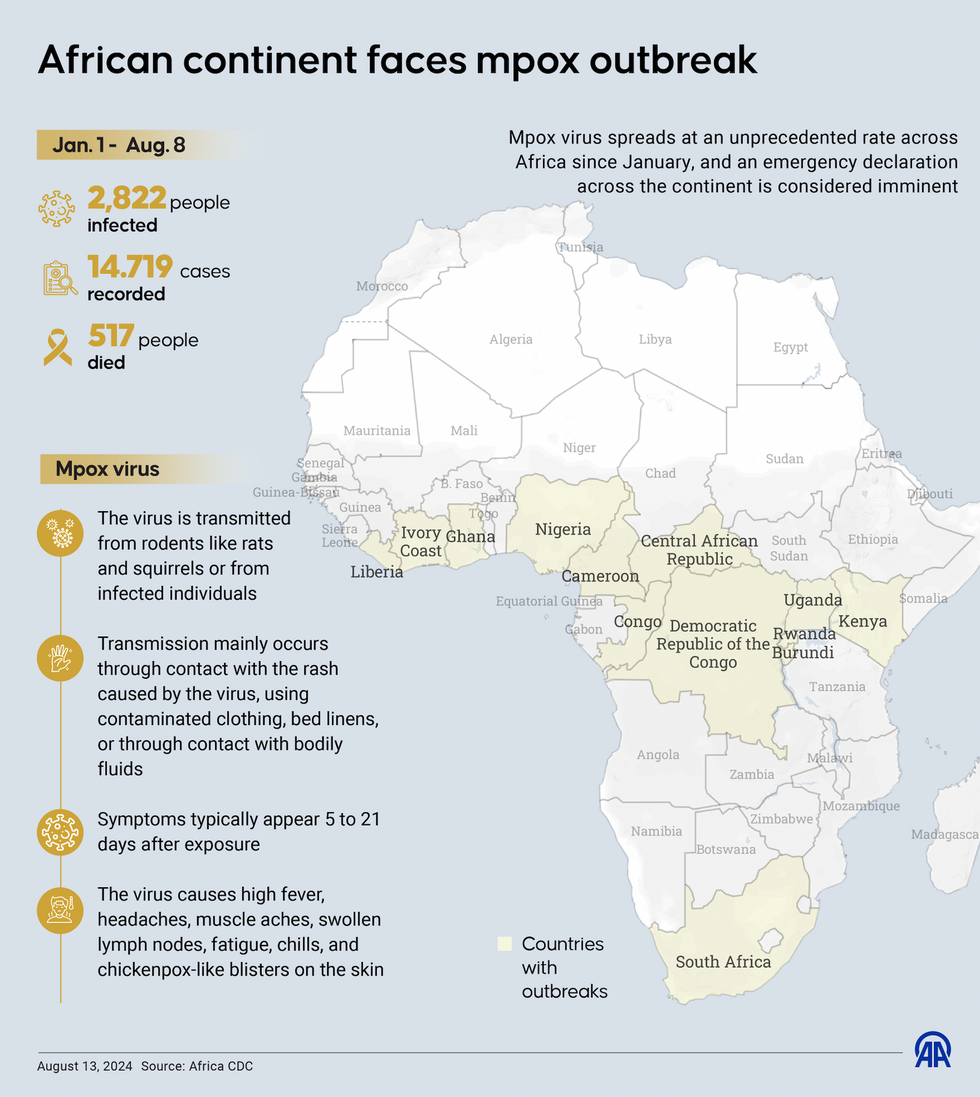Clade 1b poses a serious threat but it's not the new Covid, says WHO official
Getty Images
Clade 1b poses a serious threat but it's not Covid, says Hans Kluge, WHO regional director for Europe
Don't Miss
Most Read
Trending on GB News
The World Health Organization has issued an important update about the mpox outbreak sweeping Central and West Africa.
It comes after Europe confirmed its first human case of a dangerous new strain that's thought to be driving the current outbreak.
WHO's decision on August 14 to declare the current mpox outbreak a global health emergency set off feverish speculation about a new pandemic.
WHAT IS MPOX AND WHAT ARE THE MPOX SYMPTOMS?
A World Health Organization official attempted to quell these concerns on Tuesday, claiming that the mpox outbreak bears no resemblance to the dark days of the Covid pandemic as we have the tools and systems in place to contain it, adding that we must not squander these advantages.
"We can and must tackle mpox together," said Hans Kluge, WHO regional director for Europe, in a media briefing.
"So will we choose to put the systems in place to control and eliminate mpox globally? Or we will enter another cycle of panic and neglect? How we respond now and in the years to come will prove a critical test for Europe and the world," he added.
Assistant Professor Brian Labu of the University of Nevada agrees that this is a different threat to Covid, which you "could get anywhere".
The chief difference is that mpox is not airborne - it typically requires close, skin-to-skin contact to spread, he explains.
"It doesn't have the same threat to the general population so people are going to look at it very differently," he told GB News.
However, the danger is that this breeds complacency, he warns.
The virologist points out that Clade 2 - the strain behind the 2022 outbreak - was confined to men having sex with men.
Clade 1b is spreading throughout the wider community, via heterosexual contact, the immunocompromised, pregnant women and children.
In the Democratic Republic of the Congo, where Clade 1b is rampant, a significant number of these cases have been among children - 40 per cent of cases are in children under five years old.
There needs to be much greater awareness of this, Professor Labu says.
LATEST HEALTH DEVELOPMENTS

The other reason to be on high alert is the seriousness of the threat. Clade 1b has a much higher death rate than Clade 2 - and it's spreading more efficiently.
In an exclusive investigation this week, we take a deeper look at the new strain and the risk it poses to the world.
Our analysis suggests that latest WHO update is reassuring but there are still considerable hurdles to containing the spread of mpox.








